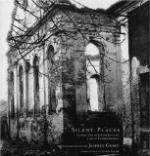Sam accepted the hospitality of a pipe of tobacco, and attacked the question in hand from a ground tacitly assumed since the evening before.
“If Hutsonbaycompany make winterpost on Animiki will you get your debt there instead of Missinaibie?” he asked first of all.
Of course the Indian assented.
“How much fur do you get, good year?”
The Indian rapidly ran over a list.
“Lots of fur. Is it going to last? Do you keep district strict here?” inquired Sam.
Under cover of this question Sam was feeling for important information. As has perhaps been mentioned, in a normal Indian community each head of a family is assigned certain hunting districts over which he has exclusive hunting and trapping privileges. This naturally tends toward preservation of the fur. An Indian knows not only where each beaver dam is situated, but he knows also the number of beaver it contains and how many can be taken without diminution of the supply. If, however, the privileges are not strictly guarded, such moderation does not obtain. When an Indian finds a dam, he cleans it out; because if he does not, the next comer will. Sam’s question then apparently had reference only to the probability that the fur in a close district would be strictly enough preserved to make the establishment of a winter post worth while. In reality he wanted to measure the possibility of an outsider’s gaining a foothold. Logically in a section where the tribal rights were rigidly held to, this would be impossible except through friendship or purchase; while in a more loosely organized community a stranger might readily insinuate himself.
“Good keeping of district,” replied the Indian. “I keep head-waters of Kabinikagam down to Sand River. When I find man trapping on my ground, I shoot him. Fur last all right.”
This sufficed for the moment. The next morning Sam went over early to the other camp.
“To-day I think we go,” he announced. “Now you tell me all the hunters, where I find them, what are their districts, how much fur they kill.”
“Ah hah!” assented the Indian. Sam’s leisurely and indirect method had convinced him. Easily given information on the other hand would have set him to thinking; and to think, with an Indian, is usually to become suspicious.
The two descended to the shore. There they squatted on their heels before a little patch of wet sand while the Indian explained. He marked roughly, but with almost the accuracy of a survey, the courses of streams and hills, and told of the routes among them. Sam listened, his gnarled mahogany hand across his mouth, his shrewd gray eyes bent attentively on the cabalistic signs and scratches. An Indian will remember, from once traversing it, not only the greater landmarks, but the little incidents of bowlder, current, eddy, strip of woods, bend of trail. It remains clear-cut in his mind forever after. The old woodsman had in his long experience acquired something of this faculty. He comprehended the details, and, what is more, stored them away in his memory where he could turn to them readily. This was no small feat.




